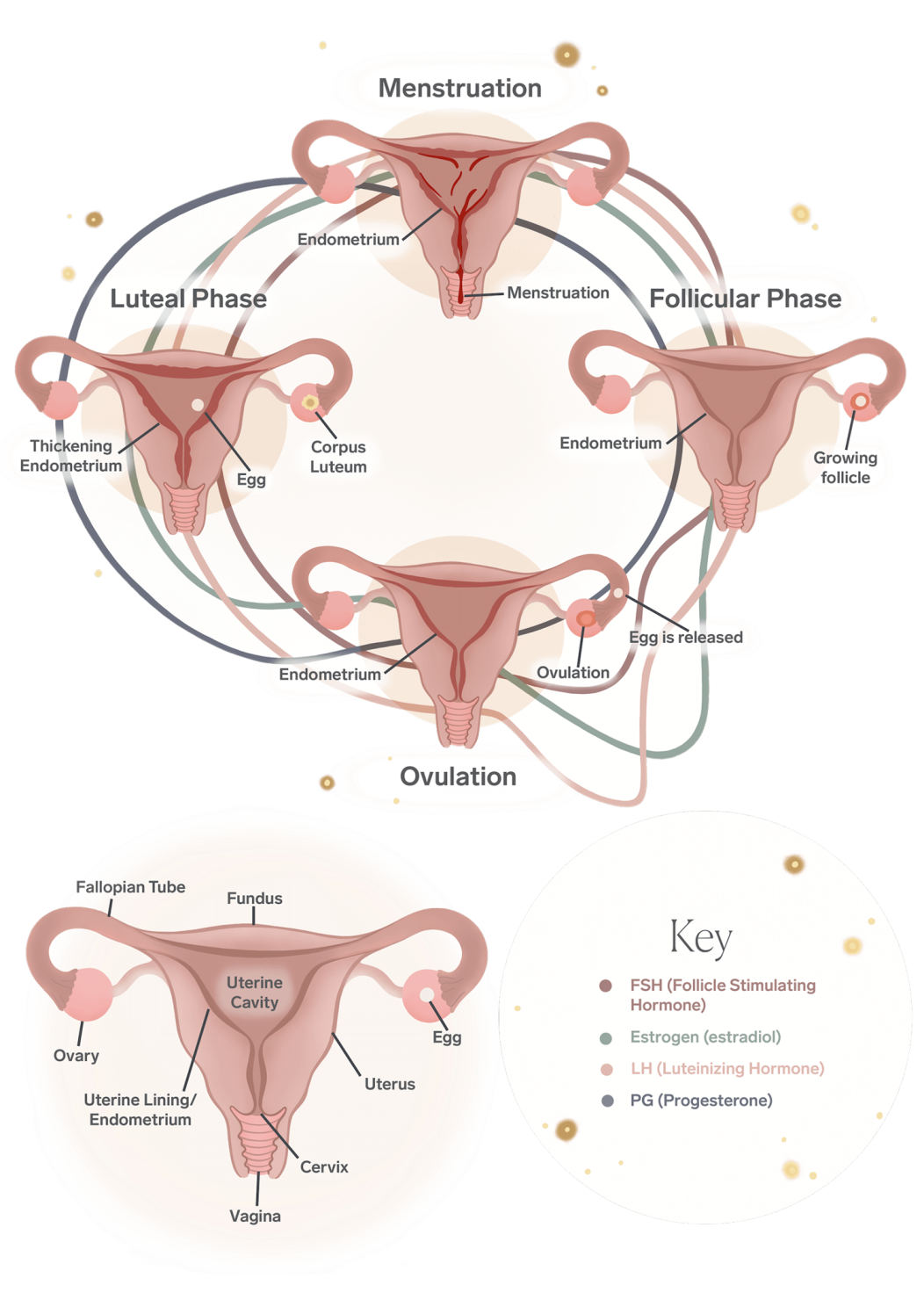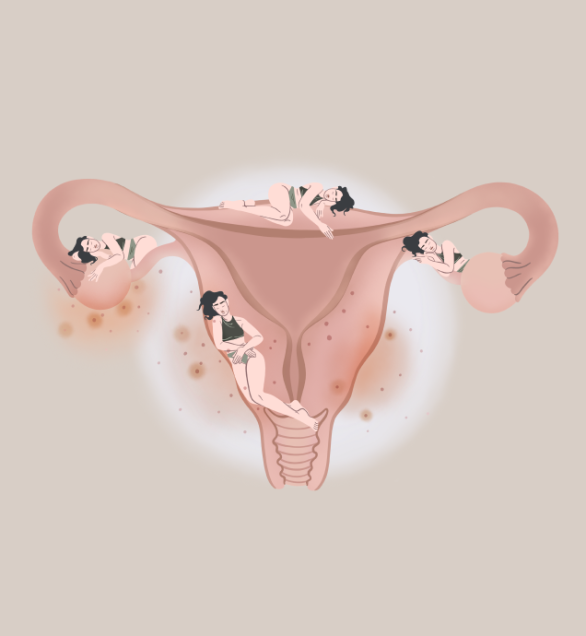The Zoom In: What Is Menstruation?
A closer look at what really happens during the first part of your cycle and an answer to the question: what is menstruation?
Not to be confused with your menstrual cycle, menstruation (otherwise known as your period) signals the beginning of your cycle. This is when your uterine lining - a mixture of blood and endometrium - sheds through the cervix and vagina.
This menstrual bleeding and shedding happens when a pregnancy hasn’t occurred. Essentially, your period indicates that a fertilized egg hasn’t implanted in your endometrium. On day one of your period, your progesterone and estrogen (important reproductive hormones) levels are low.
Menstrual period bleeding can also be present. When it comes to period pain, such as menstrual cramps, or ovulation pain, applying a period patch on your uterine area can help with discomfort caused by the pain.
The length of a period can vary. Typically, a normal period can last up to 8 days, but on average might last 4-5 days (if it’s longer than 8 days, mention it to your health care provider). Remember: it will differ for everyone, and can shift as you get older.

Understanding how to track your menstrual cycle allows you to know which stage you're at during your cycle. There are four stages during the cycle: menstruation, follicular phase, ovulation, and luteal phase.
The menstrual cycle length also varies depending on your period and other factors. Hormonal imbalances and different hormone levels, as well as common irregular periods, can impact your period length, therefore affecting your menstrual cycle length. Nonetheless, understanding the menstrual patterns of your cycle allows you to prepare yourself before each stage, whether that's with period pain, hormonal imbalances, or tracking ovulation.
Your hormones can be complex and unpredictable. That’s why we’re here, on The Regular, to do what’s long overdue - to demystify what’s going on with our reproductive systems, our hormones and our whole cycle.
We’re here to support your day-to-day queries serving useful content that is uncomplicated and unbiased. No topic is too complicated or too specific for us to address/focus on.


